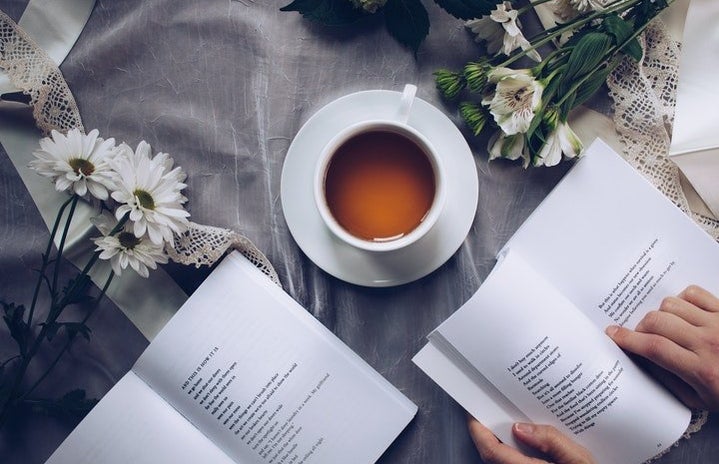English has been my favorite class since I was in elementary school.. But my least favorite part of the entire class was when we had to talk about poetry. Even in college, when I had to take literature courses, it was very difficult for me to keep up since I had no interest in it. Every poem I ever read was, in my eyes, extremely difficult to comprehend and even more difficult to enjoy. But at one point in college, I met this professor who showed the class different kinds of poetry. It was written by poets from this century and it covered themes that we all experience in much more contemporary and accessible language.One of the assigned reading materials for this course was a book that consisted of only those kinds of poems. We didn’t have to read the whole book, but I did. It was so interesting and one of them even made me tear up.
One of the poems he made us read was “Poem for his Ex-Girlfriend” by Jillian Weise. Spoilers ahead, please consider reading the poem before continuing. The title alone sparked my interest. I thought it was pretty obvious that it’d be a love poem and maybe it would even feature her thanking her partner’s ex-girlfriend for giving him up, just like Avril Lavigne’s “Sk8er Boi”. However, it was anything but. The poem is a sad retelling of a broken relationship from the eyes of the woman that was part of the reason the relationship ended. She greets the ex like they’re old friends as she says “Where are you these days? /Last I heard you worked at a bakery…” If you try to read between the lines, this could also sound like she’s asking her in a slightly mocking tone.
“You were the picture in a snow globe/on his desk that I’d go to, shaking/when he left the room/That room.” Here I can only deduct that she met her current boyfriend while he was in a relationship; and as she specified “that room,” one could only deduct that the two started an affair. That is the first hint, though. The next one seals the deal for me, “We tried not to talk/about you…” This is also the first time we start to see her feel slightly guilty. If she had said that they never talked about her, she would have sounded mean and bitter. “In my mind you were so good/at everything…” Here we see she’s rather than mean, and she’s just projecting her insecurities onto her ex. Now, it’s pretty evident that she pushes that negativity from the ex towards herself.
“I asked him if you had two legs… He said yes/as if he was ashamed to admit it/Does it make you feel better/to know he cheated with a handicapped girl?…” This part, though, could also be interpreted as her mocking the ex, by stating that she wasn’t good enough for himー so much so, that she points out in a rather ableist way, how he would go as far as to have an affair with a girl is handicapped. On the other hand, it can also be seen as her constantly comparing herself to his ex.
In another stanza, she mentions how “Once…he said/he was waiting for you to/stand on your own two feet/and it was hilarious to me/though it was a serious conversation/ so I could not laugh.” It seems that even when he just mentions his ex, in passing, she can’t stop comparing herself to her and maybe she even thinks that he also compares the two of them, making her feel bitter and jealous but also lonely and guilt-ridden.
As the poem comes to a close, we see that he’s no longer with his ex and is now with her, “We never talk about you now/ It’s not allowed. We have to act all/that-never-happened.” I wonder if that’s also how people that have cheated on their significant other with someone else and then started a real relationship with them act as well?
The final stanza starts with, “I always liked you…” Now this got me thinking about whether the speaker and the ex knew each other or not, or maybe she got to know more about his ex the times the two would talk about her when they were having an affair, and she constructed an image of a girl she wanted to be friends with. The stanza continues with, “…when I get to missing you/I pretend you’re in the room/and you forgive me and say/you always knew.” The last line got me thinking about the breakup and had me pitying the ex even more. Let’s say that he broke up with her. In that case, what was the reason he gave her to justify the breakup and how did she take it? Or maybe he never told her why he made that decision, and she never found out what he was actually doing behind her back. It is clear, though, that the two did have an affair.
Although I can’t come to pity the speaker, I find the ending slightly bittersweet because as the saying goes, misery loves company. Although the two of them are now together and are an official couple, they seem to have this lingering attachment of guilt directed toward his ex. He could probably be thinking that he was a horrible boyfriend, and how he could have done things differently and the speaker will constantly be comparing herself to his ex and wondering if he’s also comparing the two of them. This would eventually lead to them either having a nasty breakup or avoiding the topic of his ex altogether, as they do now, and live together in denial and misery. I’d like to think that the two had a bad breakup and the ex is flourishing in a loving relationship.
I can’t come to enjoy the classics, but this was one of the poems that I have to say actually got me to like poetry, and because of this one and only reason, I will give it a 10/10.


